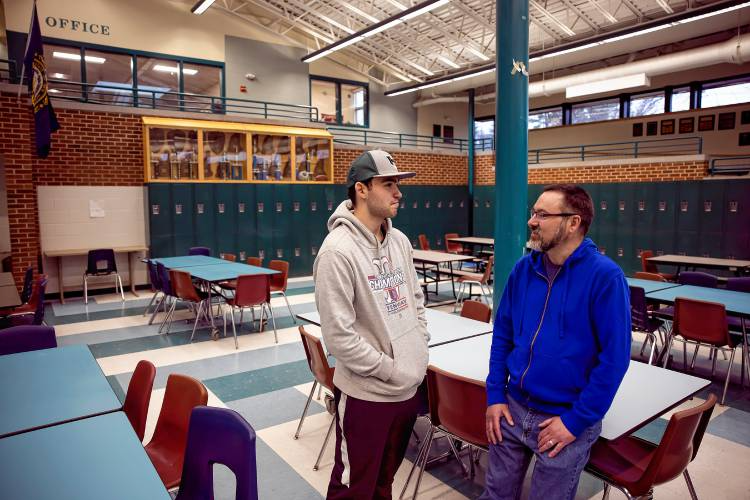DURHAM- Many University of New Hampshire (UNH) students may not be aware that there is a fight club hosted on campus. The only difference is it’s not for humans – it’s for microbes.
Dr. Elizabeth Harvey, associate professor in the Department of Biological Sciences and head of the UNH Phyto Lab (also called The Harvey Lab), is a nationally accomplished researcher at UNH. As the name of the lab indicates, Dr. Harvey’s research is associated with phytoplankton – tiny cell microbes found in the ocean.
The name of the game is finding out how phytoplankton tick. From hours of observation to what Dr. Harvey calls their ‘fight club’ for microbes, everything is an effort to see how different microbes interact with each other and to view their growth over time.
As an R1 research university, UNH is up there with some of the most famous universities in the world. ‘R1’ means that UNH is an institution at the forefront of research and innovation and receives both public and private funding for its endeavors. For students at UNH, this means access to some of the best opportunities in the country in the form of internships and jobs working alongside the bright minds that run these studies and research programs.
“We’re interested in studying the health (of the phytoplankton) and also how carbon and nutrients get cycled through the ocean,” Dr. Harvey said.
Daily lab work is structured and seemingly all about repetition. Dr. Harvey said since phytoplankton happens to grow very quickly, it allows the researchers to work fast. Most days are about keeping count of the growing microbes – not just phytoplankton, but also viruses, bacteria, parasites, and more – as well as general care, a lot of seawater filtering and streaking on bacteria plates.
According to Dr. Harvey, while students mostly assist her in her own research, they also perform experiments themselves. She says that working in the lab is a great way to jump start your scientific career.
“Students learn the whole process,” she said. “From taking care of cultures, to lab basics and also starting and running their own experiments.”
Dr. Harvey also says lab work is a great way for students to decide if working in a lab, or even the STEM field entirely, is the right choice for them.
“I encourage students to start early. That way, they can learn things fast, but also I think it’s good to try a couple different things as an undergrad to help them see what they like and don’t like,” she said.
Alyssa Daigle is a graduate student who started working at the labs at UNH as a junior, then at her current lab, Lakes Lay Monitoring Program (LLMP), in March of 2022. To her, working in the labs has been a process she has thoroughly enjoyed.
“I loved gaining all the technical skills that will eventually be useful to me,” she said. “ It helped build my confidence for my current grad program and lab work.”
Daigle shared that it was the initial lab programs at UNH that led her to her current position with LLMP as well as her internship over this past summer working with lakes, which she called her ‘dream job.’
“To anyone thinking of joining a research lab, I highly recommend it,” Daigle said. “It has helped me so much, made me a better student and is also so much fun.”
Lab work, to both Daigle and Dr. Harvey, is something enjoyable and rewarding, but to some people, pipetting and counting all day may seem a bit like rote work. In an effort to combat this stereotype, Dr. Harvey had a few stories to share to show the more human side of research.
“Some of these might get me in trouble,” Dr. Harvey said with a laugh. “But one time I set a tiny little plastic bag on fire. The students still make fun of me because I’m the only one who has set a fire in the lab.”
She also detailed multiple other comedic anecdotes about lab life, describing a massive ball of tape that she and the team had ‘cultivated’ for over a year as well as an instance where her lab worker’s art was thought to be that of a kindergartener.
“It’s really important to have fun in science,” she said. “You just can’t take yourself too seriously. Science is a marathon, not a sprint. Slow down.”
Dr. Harvey’s phytoplankton lab is not the only one on campus, and she encourages all students who are interested to ‘shop’ around and figure out what they like best, as well as to try and get over the initial nervousness about working in the lab that some newer students may have.
“I know it’s probably really scary to cold email a professor to ask about their lab, but there is nothing to be afraid of,” she said. “You never know what might happen or the opportunities it may create.”























